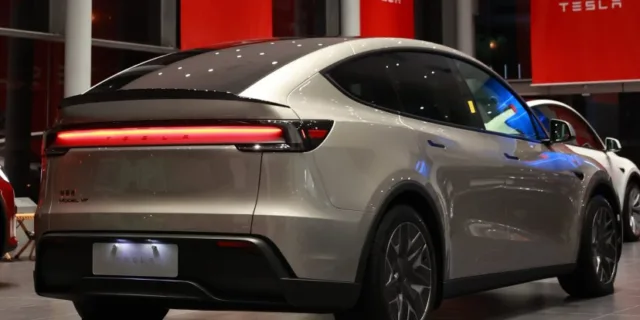Tesla might have been a dominant force in the world of electric cars for a while now, often setting the standard for technology and performance, but in the hyper-competitive Chinese market, the American automaker has found itself playing catch-up in one crucial area: in-car intelligence. Local competitors have offered sophisticated, conversational voice assistants for some time, while Tesla’s system has remained comparatively basic.
To close the gap to its competitors and enhance the smarts of its EVs in China, Tesla is turning to local experts. The company will integrate powerful artificial intelligence models from two Chinese tech firms, DeepSeek and ByteDance, into its vehicles, starting with the new Model Y L. The new voice assistant will be hosted on ByteDance’s Volcano Engine cloud service and will provide a much more natural and powerful voice interaction experience for drivers.

Quite interestingly, the new system divides the work between two specialized AI models. Doubao, an AI developed by ByteDance (the company behind TikTok), will handle the practical, car-related commands. Drivers will be able to use their voice to set a navigation destination, change the music, adjust the climate control, or even ask questions about the owner’s manual. Handling the more conversational side of things will be DeepSeek, which will power a voice chat service, allowing for more open-ended questions and discussions.
This upgrade is debuting on the recently launched Tesla Model Y L, a new six-seat SUV variant that joined the lineup on August 19. This model marks the first time a Tesla in China will support a wake word. Drivers can simply say «Hey, Tesla» to activate the assistant, a hands-free convenience that owners of other electric cars have long enjoyed. On all other Tesla models sold in the country, activating voice commands requires a physical button press on the steering wheel, a method that feels increasingly dated.

At the same time the company is integrating DeepSeek and Doubao in China, its vehicles in the United States are set to use Grok, the AI model developed by xAI. This dual approach shows that Tesla recognizes the need to use locally developed technology to meet the unique demands and competitive pressures of the Chinese EV landscape. As much as Elon Musk might not like it, it is a clear admission that when it comes to in-cabin AI, homegrown solutions currently have the edge.
The choice of DeepSeek is especially important. The AI firm, once relatively unknown, shot to prominence earlier this year with models that impressed tech circles globally. Its technology is quickly becoming a favorite among automakers in China. Brands including Zeekr, Geely, Dongfeng Nissan, and Voyah have all announced plans to integrate DeepSeek’s AI into their electric cars. With DeepSeek having just released its even more powerful DeepSeek-V3.1 model, the AI arms race inside our vehicles is only just beginning to heat up.








